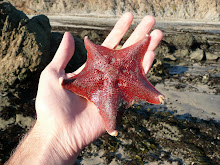
Ankara, May 29, 2008
My sister's last day in Turkey, we went shopping in Ulus, a historic neighborhood in north-central Ankara, where from the broad, grimy, cacophonous Ataturk Boulevard, smaller streets and alleyways spread up toward the castle. At the base of the hill is a typical urban marketplace, with an indoor area dedicated to food ringed by small shops, shoulder to shoulder, selling baby clothes, teapots, drill bits, nuts and spices, and any other household item you might want. With the clock ticking toward our date with auntie Turkan and uncle Faruk across town, and the list of people to buy gifts for glaring at her, Kate got down to business. In the kitchen shop, she bargained like a pro with a short, balding, tight-lipped man. A true professional, he held his own in the haggling, but Kate came away with a good deal on tea pots, glasses, saucers and spoons.
She spoke, and I interpreted. Mind you, I speak Turkish poorly. It helps that I have pactice working profesionally as a Spanish interpreter, but interpreting Turkish feels like batting practice, with baseballs flying at me from two machines set to super-fast.
Meanwhile, the salesman's coworker shuffled between us and the door, where called out the shop's wares, prices for soup pots and such. He was taller, thin, mustachioed, smoking, wearing a straw cowboy hat. He smirked as he sized us up and asked us where we were from, then turned to help an elderly couple wearing Muslim skullcap and headscarf. Soon he bounced back to where we were, tapping a few piles of tea saucers. When Kate looked up to see what the racket was, he opened his eyes wide, pointed to one as if to say "check this out," then banged dozen saucer piles in quick succession, like a xylophone. We chuckled, his coworker scowled. Later he came up to me, grabbed my forearm, pointed at my sea star tattoo, and in the simplest of body language, he asked, "what's all this about?" I answered in kind, "who knows?" Looking at me in the eye, up close, he smiled, and went back to yelling for customers at the door.






